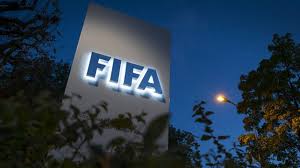October 24 – The geo-political financial partnership between Saudi Arabia and Japanese financiers SoftBank, rumoured to be the operators of the financial vehicle behind the $25 billion FIFA international calendar sell off, looks like it might have run into difficulties over the killing of Jamal Khashoggi.
SoftBank boss Masayoshi Son pulled out of participating in the Future Investment Initiative summit – dubbed Davos in the Desert – in Riyadh. SoftBank’s Chief Operating Officer, Marcelo Claure, was also absent from the event.
Saudi Arabia is the biggest investor in SoftBank’s £60bn Vision Fund, which is behind some of the world’s biggest start-ups, like Uber Technologies, WeWork Cos, Didi Chuxing and Slack Technologies Inc.
Uber had already pulled out of the Saudi investment event in protest over the Kashoggi killing as had a number of more than 40 other big name business leaders.
For the Saudis the Kashoggi killing in the Saudi embassy in Turkey has brought a global condemnation. However the Saudis choose to spin the murder, it took place in their property on foreign soil by operatives who landed in Turkey from Riyadh the day before the killing.
The defense that Crown Prince Mohammad Bin Salman who is bankrolling the FIFA proposal knew nothing of the mission and so can’t be held responsible raises even deeper questions over how the Saudi kingdom is run.
For FIFA, driven by president Gianni Infantino’s somewhat crazied dash for the cash for his organisation, the decision raises multiple issues around the reorganisation of the global football calendar, the handing over of control of FIFA rights and transparency around the financial proposals that so far has been very short on detail.
Now the moral issues surrounding who FIFA partners with are being raised to a new levels, and even if FIFA were to take the money they would need to consider the effect that would likely have on their sponsor partners (and increasingly their broadcast partners) who have stuck by them through the corruption scandals but would find it very considerably harder to be associated with an organisation so closely partnered with and funded by a state that so publicly kills its dissident voices – however well they tried to disguise the financial vehicle.
Contact the writer of this story, Anthony Harwood and Paul Nicholson, at moc.l1751520748labto1751520748ofdlr1751520748owedi1751520748sni@o1751520748fni1751520748

